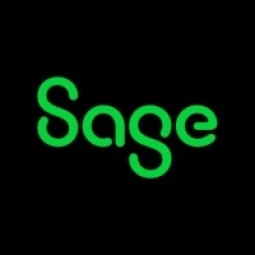Download PDF
Posera Cashes in on the Benefits of Sage 300
Technology Category
- Application Infrastructure & Middleware - API Integration & Management
Applicable Functions
- Sales & Marketing
- Business Operation
Use Cases
- Supply Chain Visibility
Services
- System Integration
The Challenge
Posera, Inc., a leading provider of point-of-sale software and hardware to the hospitality and restaurant industries, was struggling to manage several different software packages across various office locations and departments as it grew rapidly. The company needed an integrated business technology solution that would serve the entire organization, providing a 360-degree view of its customers for sales, service, support, and accounting-related interactions. The front office was the primary concern, yet a powerful back-office business management system was also needed. Posera considered three integrated Enterprise Resource Planning (ERP) and Customer Relationship Management (CRM) solutions before deciding on Sage 300 and Sage CRM.
About The Customer
Posera, Inc. is a leading provider of point-of-sale software and hardware to the hospitality and restaurant industries. The company is headquartered in Toronto, with offices in Europe, the UK, the United States, and Canada. Posera has systems installed in tens of thousands of businesses across 25 countries. The company has grown rapidly over its nine-year history, both organically and through acquisition. Posera’s unswerving commitment to customer service and continual investment in research and development earn the company an exceptionally high customer retention rate.
The Solution
Posera decided on Sage 300 and Sage CRM as the integrated ERP and CRM solutions for their business. Sage met with the Posera management team, both in person and through web conferences, to work through the company’s requirements and the details of how the software could be structured to meet them. Sage 300 and Sage CRM proved to be the ideal solution for Posera—flexible enough to handle the company’s unique business processes, with broad functionality to address all of its requirements. As an opportunity is converted to an order in the CRM module, the order is automatically created in Sales Order module. To help customer support staff deliver better overall service, the CRM module provides easy access to accounting-related data such as credit terms and recent payments.
Operational Impact
Quantitative Benefit
Related Case Studies.

Case Study
Remote Temperature Monitoring of Perishable Goods Saves Money
RMONI was facing temperature monitoring challenges in a cold chain business. A cold chain must be established and maintained to ensure goods have been properly refrigerated during every step of the process, making temperature monitoring a critical business function. Manual registration practice can be very costly, labor intensive and prone to mistakes.

Case Study
Retail Uses RFID to Enable Cold Chain Monitoring
Like most grocery retailers, Hy-Vee is faced with the challenge of providing the highest quality products to its shoppers. Shoppers want the longest possible shelf life from perishable products and expect a consistent product experience each time they shop. Controlling the quality of products sold leads to shopper loyalty, which is of paramount importance to the success of Hy-Vee. Before products arrive in stores, Hy-Vee's distribution centers (DCs) handle items including dairy products, fresh meats, seafood, deli items, produce and frozen goods, all of which have different temperature needs and sensitivities. During transit from suppliers to DCs, Hy-Vee has limited visibility and temperature management abilities due to large amount of supplier managed transportation. For instance, during a week-long transit, a supplier's carrier equipment may malfunction, causing an item to thaw and then refreeze once repairs are made. Hy-Vee sought help from TempTRIP, an RFID solution provider that focuses on shipping, storage, receiving, and temperature control. TempTRIP's EPC RFID tags use Impinj chips to monitor and report temperature readings throughout the shipping and receiving process. The tags can also be re-configured and re-used, a unique feature within the current market of temperature monitoring devices.

Case Study
Covisint Improves Mitsubishi's Collaboration With Its Supply Chain
Mitsubishi sought to improve supplier relationships on a global basis and to offer an easy-to-use solution to interact with them. In August 2004, Mitsubishi selected Covisint’s platform to help improve sharing of information and collaborative business processes with its global suppliers. Covisint enabled Mitsubishi to provide its suppliers with immediate access to information and applications to obtain more collaborative working relationships








